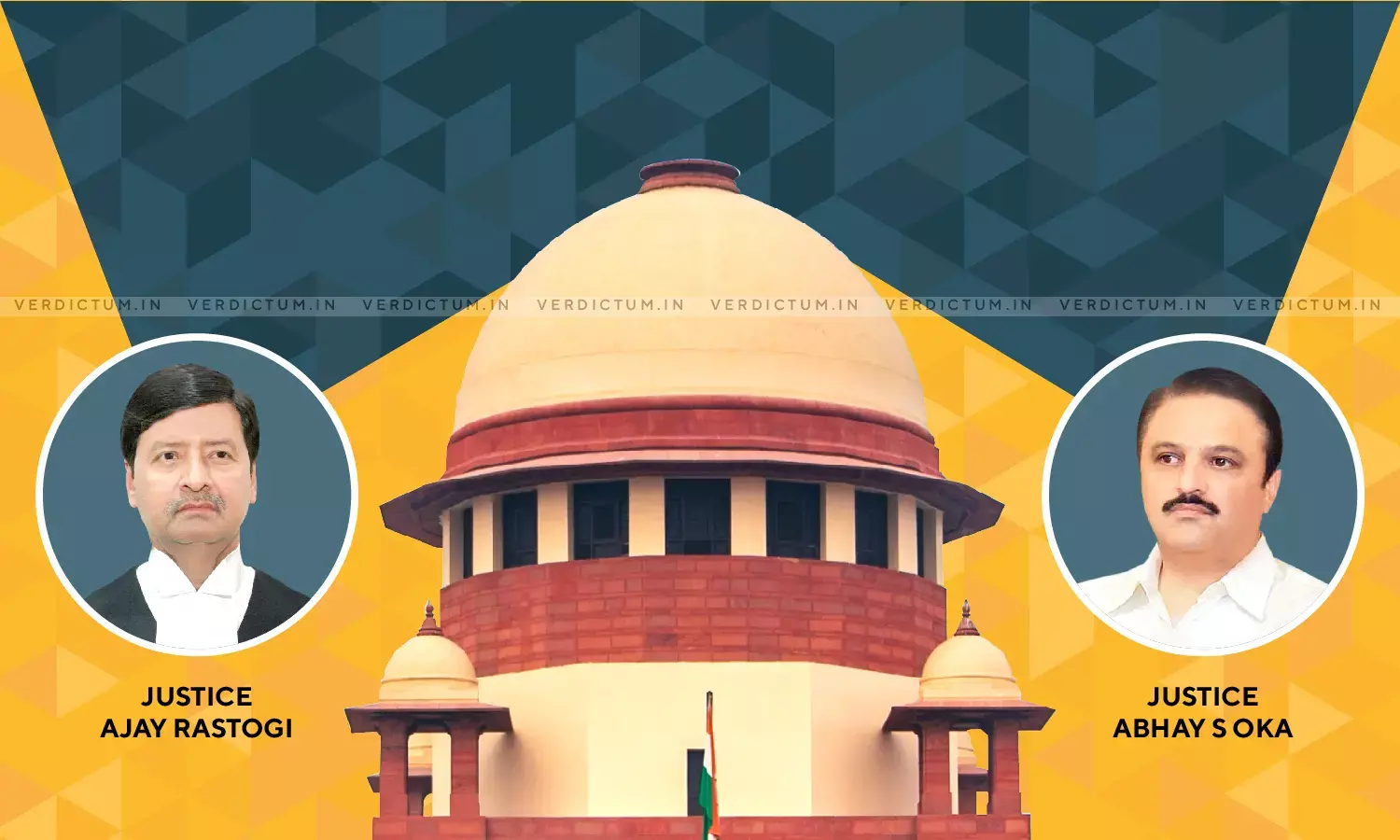Sale Of Immovable Property Without Consideration- Void Deed Can Be Challenged Collaterally Without Seeking Declaration: Supreme Court

A two-judge Bench of Justice Ajay Rastogi and Justice Abhay S. Oka has held that a sale deed executed in respect of immovable property without payment of price and if it does not provide for payment of price in future, it is not a sale in the eyes of law.
The Court held that, "Sale of an immovable property has to be for a price. The price may be payable in future. It may be partly paid and the remaining part can be made payable in future. The payment of price is an essential part of a sale covered by section 54 of the TP Act."
The Court also held that, "A document which is void need not be challenged by claiming a declaration as the said plea can be set up and proved even in collateral proceedings."
Senior Advocate Mr. Neeraj Kumar Jain appeared for the Appellant while Senior Advocate Mr. Surjeet Singh appeared for the Respondents before the Supreme Court.
In this case, the Appellant and his elder brother (one of the Respondents) had acquired the properties under the sale deeds dated 12th August 1976 and 19th October 1976. The Appellant had also executed a Power of Attorney in the favour of his elder brother-Respondent who in turn executed two sale deeds on 10th April 1981. The first deed was executed by the Respondent in favor of his two minor sons, the sale consideration of which was Rs. 5500. Another sale deed was executed by the Respondent in favor of his wife, the sale consideration was Rs. 6875.
This was followed by two separate suits being filed by the Appellant. One was against the Respondent and his wife and the other was against Respondent and his minor sons. The Appellant had sought an injunction restraining the Respondents from interfering with his possession and from alienating the share of the Appellant in the suit properties.
Appellant also amended his plaints in both the suits in November, 1985 praying that the Power of Attorney and the two sale deeds be declared as null and void. He also prayed for a money decree for his share in the compensation awarded in respect of a tube well on the suit properties.
The elder brother-Respondent had alleged that while he was employed abroad, the Appellant was unemployed and the former used to remit amounts to the Appellant from his own earnings. He also alleged that he was the sole owner of the suit properties.
Two appeals were made to the District Court by the Appellant which were partly allowed. The Court had held that the Respondent did not step into the witness box and did not place any evidence to prove that the entire sale consideration for acquiring the suit properties was paid by him. Also, the Court held that both the Appellant and Respondent were the joint owners of the suit properties. But the Court rejected the prayer of the Appellant for compensation in respect of the tube well.
On appeal, the High Court held that the Respondent had failed to adduce any evidence that he used to remit money to the Appellant from abroad. The Court upheld the decision of the Trial Court that both the parties were the joint owners of the suit properties. The High Court held that the Power of Attorney was valid. Also, the amendment seeking a declaration of invalidity of the sale deeds were barred by limitation as the said prayers were belatedly incorporated. Further, the Court held, as the amount involved in the sale deed were not large, they were not out of reach of the Respondent's sons and his wife.
The Appellant while preferring an appeal before the Supreme Court contended, that the sale deeds were null and void as the same were without consideration. It was further argued that the sale transaction were sham transactions. It was pleaded that the market value of the suit properties was worth more than Rs. 30,000/- and they were sold at a much lower price. Both the minor sons and wife did not have any source of income, argued the Appellant.
The Apex Court held that the finding of the High Court that the Appellant and his elder brother- Respondent were the joint owners of the suit properties has become final since it was not challenged before the Court.
Further, the Court observed, "Transaction made by Sudarshan Kumar of selling the suit properties on the basis of the power of attorney of the appellant to his own wife and minor sons is a sham transaction. Thus, the sale deeds of 10th April 1981 will not confer any right, title and interest on Sudarshan Kumar's wife and children as the sale deeds will have to be ignored being void."
The Court rejected the argument that the amendment seeking declaration of invalidity of the deeds and power of attorney were barred by limitation. "It was not necessary for the appellant to specifically claim a declaration as regards the sale deeds by way of amendment to the plaint. The reason being that there were specific pleadings in the plaints as originally filed that the sale deeds were void. A document which is void need not be challenged by claiming a declaration as the said plea can be set up and proved even in collateral proceedings," the Court held.
The Bench opined that since no title was transferred under the sale deeds, the Appellant would continue to have undivided half share in the suit properties.
In the light of these observations, the Court set aside the impugned judgment of the High Court, restored the decree passed by the District Court, and allowed the appeal.
Click here to read/download the Judgment

